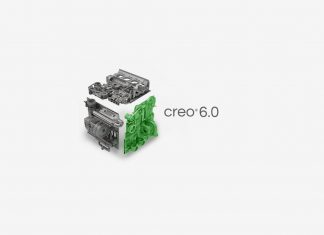SSD technology has been around for decades, but it was introduced to the consumer market only a few years ago. Solid state drives have a constant increase in popularity since 2012, and this mainly due to the fact that their cost has been steadily dropping too. So what are Solid State Drives and what advantages do they provide over traditional drives? And most importantly, why should you get a laptop with an SSD? Find out more below.
What is a Solid State Drive?
A solid-state drive is a storage device that uses flash memory to store files. SSDs have no moving parts, unlike traditional mechanical hard drives which contain spinning disks and movable read/write heads: put simply, an SSD is a hard drive that doesn’t move. It is the same technology used to make regular USB flash drives, since both SSDs and flash drives currently use the NAND-based flash memory, which can retain data even when powered off. Because of their cost, SSDs were only used by the military and aerospace industries during the 1990s. In 2009, SSDs began to appear in laptops and manufacturers started to offer them as an option for a number of models.
Advantages of Solid State Drives over traditional hard drives:
-Reading and Writing Speed: Since SSDs have no moving parts, there no spinning drive platter or moving read/write heads like traditional hard drives. An SSD needs 100 micro-seconds at most to access data, while a mechanical drive needs 5000 to 10000 micro-seconds. File Copy / Write Speed is usually between 220 MB/s – 550 MB/s (depending on the model) for an SSD, while it ranges between 50 MB/s to 120 MB/ s for a mechanical drive. For a user, this translates to faster boot times, quicker file and transfers.
You can watch the video below for a comparison of boot times using an SSD and a HDD on the same notebook:
-Less Battery consumption, less heat and no noise: an SSD will only consume 2watts of your battery, when a HDD will eat 7 watts. For a laptop, this means extra run time. And thanks to the fact they there are no moving parts, SSDs run quietly don’t generate any noise or vibration, and less heat.
– More durable and reliable: Again, since there are no moving parts involved, SSDs are sturdier and can handle shocks or drops better than an HDD, making them particularly appealing for mobile devices. They also have less failure rates than HDDs: the moving parts that make up a traditional hard drive wear out over time and this is usually the reason behind a disk failure. SSDs on the other hand have write cycles, which is the number of times the cells in the flash memory can be written and erased. This is the lifespan estimated by the manufacturer, which is usually around 20-40GB per day. In an endurance experiment, The Tech Report found that SSDs vastly exceed their official endurance specifications.
Disadvantages of Solid State Drives:
- More Expensive: SSDs are considerably more expensive than HDDs, a 512GB SSD Samsung drive will cost around 250$, when you can get a 2TB hard drive for half the price.
- Limited capacity: On a laptop, this is directly linked to the cost per GB. Although SSD drives of more than 1TB exist, most manufacturers will only equip their laptops with a 512GB or less drive. The good news is that SSD prices have been constantly dropping year after year.
Bottom line:
If you need fast boot times, a faster and more responsive laptop, and you don’t need a lot of storage capacity (personal files, images and videos, number and size of the programs you will need to install), and most importantly, if you are willing to pay a little extra, go for an SSD. On the other hand, if you’re on a limited budget, you have a lot of files and need bigger capacity, choose a traditional drive instead. You can upgrade your laptop’s hard drive later if you need an SSD. You can also consider models than come with hybrid drives. A hybrid drive is a traditional mechanical hard drive that has an integrated small flash memory. The drive has a program that determines the files that you access the most on the SSD (usually the operating system and apps). They provide better performance than regular HDDs, and are way cheaper than SSDs.








